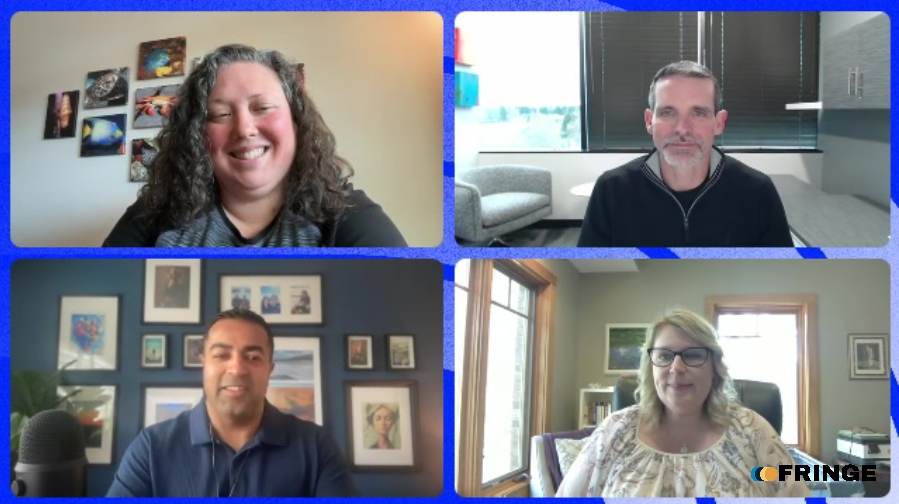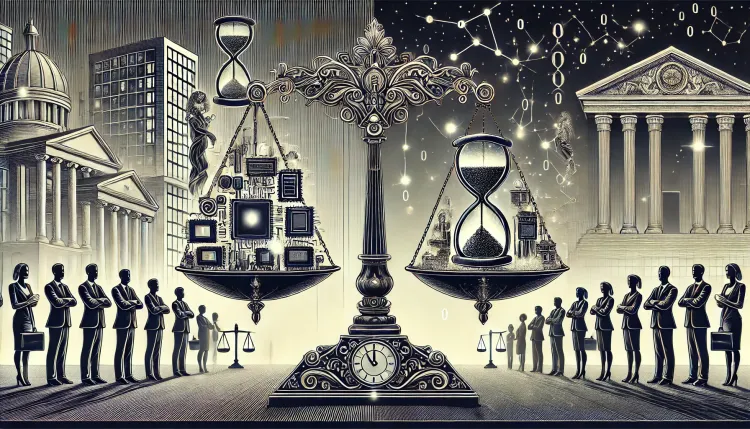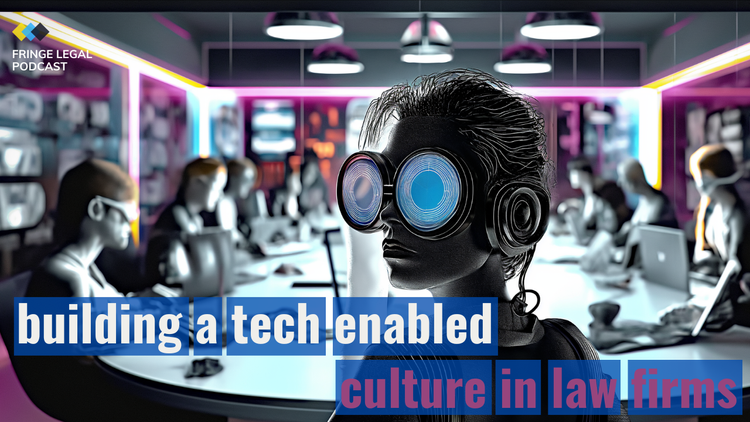Delivering quick time to value using AI tools with Jim Chiang of My Legal Einstein
SUBSCRIBE AND REVIEW: iTunes // Spotify // Pocket Casts // Stitcher
Jim Chiang is the founder of My Legal Einstein, an AI-powered legal contract review tool.
“So when you think about a time the value of that to actually have that much of a limiting factor in terms of getting to some point of value, you could have done a stand why Legal AI hasn’t really gained a huge amount of adoption. So My Legal Einstein really is intended to have a user who never actually has heard of My Legal Einstein.
They actually go onto a site, they register, they log in and then they get you to try our algorithms against any of their contracts that they actually see. And our proof of value is very instantaneous and assess that as soon as they actually find ways to navigate their own contracts, to try it on their own contracts and be able to gain value from it when things that they actually might’ve missed come up very much in an instant.
And when you talk to you about time to value for AI solutions, you really want to make sure that they get to the aha moment where they say, ‘Oh, I miss something’. And that light bulb goes on. And that basically means that the AI has helped them to find something that they have missed before and that’s a huge moment for us.”
Show notes
- Jim’s background and introduction to My Legal Einstein (01:33)
- How is My Legal Einstein different from other AI contract review tools (04:18)
- The challenges with delivery value, and how Jim approaches it (09:30)
- Algorithmic differentiation (12:08)
- Why focus on third party document (15:03)
- Future plans (18:28)
“So my Legal Einstein really caught, differentiates a lot of punch for the pre-execution space because we’re not really trying to be a better attorney. I would not try to tell the attorney what to do, but we actually tried to augment the attorney’s intelligence in terms of being able to address a lot of the intelligence and aspects of the mundane aspects”.
Transcript
Ab: [00:00:00] Hello everyone and welcome to another episode of Fringe Legal . I’m excited today to have Jim Chang. Who’s the CEO of my Legal Einstein on the show. Jim, thank you so much for joining me.
[00:01:11] Jim Chiang: [00:01:11] Thank you for having me Ab.
[00:01:13]Ab: [00:01:13] Many people may not yet have heard of My Legal Einstein. You guys just launched earlier this year, I believe in 2021.
[00:01:21] So maybe that’s a good place to start. Tell us a little bit about yourself, your story. I know you came from Apptus and you’ve spoken about that previously. What’s your journey to my Legal Einstein and what does my Legal Einstein
[00:01:32] Jim Chiang: [00:01:32] do? Sure. Maybe it makes sense to start with my background.
[00:01:36] So my background is not in the legal space. I’m actually an AI person. So by backgrounds, actually, a lot of times mathematics coding, a lot of development work and such. I started my career in AI in the video space. I did a lot of work in terms of video streaming. I started looking around at interesting problems that actually have real human impact from the AI perspective.
[00:02:01]I actually started with AI for video, and then I moved to AI with images and then sound, and then the last one was text. And what gravitate me to Legal contracts is. So this is an incredibly fascinating problem from an AI perspective where you have effectively large contracts that are sometimes a hundred pages long they’re sent between different entities.
[00:02:20] And people actually are all constantly commenting and it contains a huge richness of information there. So I actually moved into the AI for Legal space from just purely based on the AI side. Since that time I actually ended up managing the AI efforts for both two large CLM companies. Icertis and then at Apptus as well.
[00:02:40] So the reason why I started My Legal Einstein is to make AI as accessible as possible to people who are doing this work on a day-to-day basis. Obviously companies like Icertis as well as Apptus they tend to cater to larger corporate enterprise companies. Whereas I’m trying to use my Legal Einstein to actually introduce Legal AI to anyone so that you can actually get to a time to value in minutes.
[00:03:05] So the problem that My Legal Einstein addresses is the review of third party contracts, and that’s actually where AI NLP and all of the all the deep learning text-based technologies shines in terms of how it’s able to fit the servant insights from all this unstructured third-party contracts.
[00:03:20]Ab: [00:03:20] There’s a couple of points there. I think we can definitely dig into we’ll come back to the time to value. And that’s a really important point. And for those that may not be familiar with NLP natural language processing go back and listen to an episode with Matthew Golab, where we talk about and go into the AI development process.
[00:03:37]Jim, from your point of view, there’s a lot of NLP driven pre-execution contract review, CLM type tools out there. And that seems to be certainly a space that’s seeing a boom, there’s a new provider that’s around or gaining prominence every other month.
[00:03:55]What sets you apart? Is it the fact that you’re focusing on these third party contracts that you’re bringing it to the masses? Is it more around making things really simple? Or something else? And, as a, I guess as your well if I don’t know anything about your company and I’m Googling my Legal Einstein and other CLM providers show up, how do I differentiate ?
[00:04:17] Jim Chiang: [00:04:17] Yeah. So that’s a great question. Let me just talk a little bit about some of the misinformation associate with artificial intelligence, right? Part of it, I think, especially our two or three years ago the media started talking a lot about AI in very sensationalist ways, right?
[00:04:30]So a lot of times the media has actually amplified the fear factor aspects. And I think if you’d actually talked to a number of attorneys, they say it was Legal AI going to come back and take our jobs per se.
[00:04:41] And one of the things that’s a substantial differentiator from my Legal Einstein is that our aim is not to actually make a better attorney. You see a lot of technologies in the AI side that kind of mimic human behavior. And in effect, they actually try to make recommendations as if they’re actually the better attorney, for example.
[00:04:57]So there’s a number of technologies out there in the pre-execution space where, you feed information into some type of predicted aspect, and then it makes some recommendations for you. So it might make buy recommendations, for example. From the standpoint of actually getting value from a system like that one of the things we actually realized is that if you actually give five recommendations, a lot of times from an AI perspective, as well as from a statistical standpoint, one of them might, you might not be correct.
[00:05:25]Okay. And as the attorney who is actually reviewing those five recommendations, you have to go up to go spend the time to go figure out which one of those five things are actually not correct, and check the other four that are correct. And then what actually happens to all the other 10 things that the AI may have missed.
[00:05:42]Which is basically the issue . So the question is how can we actually frame AI to not be a better attorney as opposed to that. So you actually be able to address a lot of the mundane things that many attorneys do when they’re actually looking at third party paper anyway. So as an example, a lot of things that are boilerplate language, okay. You spend a lot of time reading things that are repetitive . Whereas you just effectively don’t want to see that as much if you’ve seen it, your view review to previously. And the AI could actually determine that you’ve actually reviewed this thing.
[00:06:13] And previously ended up basically just gray it out, for example, or you could actually have instances where you’re have embedded texts in the contract and you actually want to be able to discern that and to be able to find that because there’s a lot of cons it’s hidden in the contract. So my Legal Einstein really caught, differentiates a lot of punch for the pre-execution space because we’re not really trying to be a better attorney. I would not try to tell the attorney what to do, but we actually tried to augment the attorneys intelligence in terms of being able to address a lot of the intelligence and aspects of the mundane aspects.
[00:06:46]Ab: [00:06:46] So what I’m hearing and I think augmentation, there is absolutely the key word, right?
[00:06:51] So this is. Something that’s augmenting, as you said, the workflow versus a displacement or disruptive piece. And the second point, when you talk around, you’re picking up maybe, or you’re picking a five things, but only four of them might be correct. That’s a point around accuracy and I guess how broad it might be.
[00:07:10] And I know looking at your tool, one of the things that stood out to me, Was this sensitivity dial which is not physical dial obviously, but you can adjust the sensitivity so you can, you can decide how far deep you’d want to go into your agreements versus seeing things at a high level.
[00:07:27] And at least to me, that seems like it’s a question of trust you building that the system is picking up all the relevant informations and you’re being surfaced with something that you are deeming, I suppose it’s offers deeming or the platform is seeming to be relevant to you at that time, but you can then look at everything else as well.
[00:07:46] Should you choose to, is that fair?
[00:07:48] Jim Chiang: [00:07:48] I think that’s quite fair. I think that’s actually a very good interpretation. I We allow the attorneys to be able to navigate contracts based on topics. And be able to deep dive on topics. And that’s actually a very useful thing when you actually have many many red line conversations where you basically vary language in different parts of the contract and, the attorney is always wondering about whether they miss something and we provide a tool to allow them to help double check their work so that they can figure out if there is some financial acceptance, it buried in the contract that it, you would not have found if you just did a text search.
[00:08:22] Right.
[00:08:22]Ab: [00:08:22] And then the other thing which I hear as I speak to, others in the industry around AI tools and I’m using that term pretty broadly. One of the, I guess the accepted points tend to be in order for a lot of the AI driven tools, whether it’s machine learning or NLP based there, there needs to be X amount of training given.
[00:08:45] So when someone sees a demo, things look pretty good, but in order to get those results, when you feed in a document that sell for different corpus or type or language, whatever it might be. The language I get is completely an exception to the rule. Unless you’ve given enough of a sample size to the baseline model, then you’re not going to get the same level of results.
[00:09:06]Whereas one of the things that certainly myLegal Einstein promotes is that you’re able to start getting value from within five minutes, which is amazing because one of the key things for any technology is how quickly will you start getting value from it? After you have access to it or have it implemented if it’s one of those types of technologies and five minutes certainly seems like a bold claim.
[00:09:26]So yeah. Talk a little bit about why that’s important and how you achieve that.
[00:09:30]Jim Chiang: [00:09:30] Let’s talk a little bit about time to value. So I think the perception in the marketplace is that Legal AI is a very hard thing to do. So I think I’ve heard of many proof concepts there where you, basically throw a couple of AI engineers together with a few lawyers and maybe after a year or so, you might have a proof of concept, of something that has a rough way to predict some outcome some type of clause that actually might be risky or something along those lines. And after a year, you may or may not have a successful POC with, potentially hundreds of thousands and invested in it.
[00:10:03] So when you think about a time the value of that to actually have that much of a limiting factor in terms of getting to some point of value, you could have done a stand why Legal AI hasn’t really gained a huge amount of adoption. So My Legal Einstein really is intended to have a user never actually have heard of My Legal Einstein.
[00:10:21] They actually go onto a site. They register, they log in and then they get you try our algorithms against any of their contracts that they actually see. And the, our proof of value is very instantaneous and assess that as soon as they actually find ways to navigate their own contracts, to try it on their own contracts and be able to gain value from it to buys things that they actually might’ve missed in comes up very much in instantaneous type of value proposition.
[00:10:48] And when you talk to you about time to value for AI solutions, You really want to make sure that they get to the aha moment where they say, Oh, I miss something. And that light bulb goes on. And that basically means that the AI has helped them to find something that they have missed before. And that’s a huge moment for us.
[00:11:05]The other aspect is basically in general. And in terms of artificial intelligence, it actually is a very complicated topic. Okay. It’s actually less engineering and less coding as it is a lot about mathematics and probability. That said when you actually go and use like more consumer friendly devices, like the Alexa, the Siri’s of the world, one of the ways you actually measure how well AI works is that it’s actually able to, you understand your voice.
[00:11:30] Even though they, might’ve not heard you before. And the same as exact case with Legal AI, because if our outcomes are smart enough, it’s actually able to determine and pick out things on contracts is never seen before. And I think that is the best test of how well AI generalizes to different spaces.
[00:11:48] And from the standpoint of AI, it’s actually deep thing that actually makes AI useful.
[00:11:55]Ab: [00:11:55] How does it function and, or rather how well does it function on the types of contracts? Actually let me go back one step. What kinds of contracts is my legal Einstein designed for?
[00:12:05] Is that anything and everything or something specific?
[00:12:08]Jim Chiang: [00:12:08] It’s anything and everything. We actually trained our algorithms on the 30 different legal topics that are most commonly sought after across all types of contracts. So whether it’s actually a lease agreement, real estate purchase agreement, purchase agreements, sales, cons, contracts, service agreements, all of those tend to have things like liability termination.
[00:12:26]Indemnification intro all these types of standard contract clause across multiple contracts. So by using our algorithms, you’re actually able to map very intelligent for each paragraph, not only the primary topics, but also the secondary topics. So you can actually navigate it. So you actually got deep dive on these specific topics.
[00:12:45] Now that said don’t one contract that we don’t do very well is basically deduct these costs about the NDAs, right? Where you send an NDA contract effectively. It labels everything as a confidentiality clause because there’s really not a whole lot of variety in terms of NDA contracts. But with the exception of that, anything that actually has multiple topics in a contract is something that My Legal Einstein does pretty well.
[00:13:08] Ab: [00:13:08] Okay. And how does it then function? Because, so let, I’m just going to make up a number. Let’s say you are looking at 20 different topics that you’ve built into the algorithm. Is it capable or does that improve over time? So over time it will start recognizing different types of topics or even subtopics within that.
[00:13:27] So is it, and I know it’s NLP based, so are you updating the algorithm? So it becomes more refined as you get more feedback from the market.
[00:13:35] Jim Chiang: [00:13:35] Well, one override adding consideration is that we’re so security conscious that it’s like we’re over the top. And that’s basically the expectation by all our user base.
[00:13:46] And part of it is that if you actually look at any corporate assets, you leave with contracts, I’ll probably one of the highest sensitivity in terms of the, in terms of assets. So we do not share, and we purposely do not share any of this information between customers or anything like this. So we’re not gaining any intelligence.
[00:14:02] Specific to a customer that was that’s actually then shared to other customers. That said, one of the things that we have built in is that this concept of document types. So as a user, you can actually create your own document types. And then as you create more instances of those document types, you then provide feedback that’s specific to that document type that you created.
[00:14:24]When you do that, the AI algorithms actually are able to learn different examples of those document types and then retrain models to actually optimize based on those document types. Part of the product design aspect is that how do we actually achieve high time to value across all customers?
[00:14:40] So we actually have based models that allow to do that, but then as they use the system, how to actually make it smarter and smarter based on their input. And that’s actually the mechanism that we do that though.
[00:14:50] Ab: [00:14:50] Makes sense. And I’m glad you touched on the security point because that was going to be one of my questions at show.
[00:14:55] It is for everyone. So that’s really helpful. And then you touched on something, but you’re not focusing on the creation of the document, right? This is purely a review tool or,
[00:15:03]Jim Chiang: [00:15:03] So the creation of the documents is actually more of a CLM problem. Because CLM vendors, I think they do a lot of the terms of a document automation asking some questions, building tablets for different types of contracts.
[00:15:14] And I think that’s actually a very very, obviously a very substantial business for Icertis, for Apptus, for all Tonga, for all the other companies actually in the space. But when you think about contract risk, okay. And when you think about compliance issues, When you’re actually able to originate the contract.
[00:15:30] Typically you minimize the risk by basically being able to originate this contract. And so most of your contract risk and everybody understands, this is actually in the third party paper that. You might’ve actually had some review cycles on that might actually have some varied language there.
[00:15:46] And you want to be able to determine that right out the gates, right? So that you actually negotiate the next contract with the best language possible. So as part of the value proposition with my Legal Weinstock, we recognize that the best way to evaluate third-party contracts is to look at it side by side with your own paper.
[00:16:03] Okay. And also with your own playbooks and your clause libraries and things along those lines. So we have these side by side panels, so you can actually compare language based on what you as an organization considers as the best practice, right? And that’s, when you think about how attorneys think about things, they typically do not create new language.
[00:16:22] They see just reuse their language in the right instances and we make that as easy as possible.
[00:16:27] Ab: [00:16:27] Yup. Okay. And just looking through your website earlier and prepping for this for this conversation, it seems that you’re certainly your primary audience are in-house teams and other business stakeholders.
[00:16:39] Is that fair or do you have a lot of law firms that are utilizing the technology as well?
[00:16:43]Jim Chiang: [00:16:43] I think our primary base is actually getting a house Legal, but at the same time, there’s many law firms that actually have built a practice around a specialty for labors contract negotiations, for example, a small business purchase agreements or things like looking at IP aspects or IP contracts and things along those lines.
[00:17:00] So the smaller law firms, I actually have already built up a knowledge base of different methods. Different contracts can basically just. Become users of our system and BHG be able to import all our knowledge base and be able to compare them right off the bat. In-house attorneys, it’s a kind of a obvious thing where they actually have to, once they actually get the contract in, they need to be able to break it out by topics, just at least to share with other groups like finance groups.
[00:17:27]They don’t want to be in a position where they’re signing off on something that finance team hasn’t actually has fast to review. Yeah. So as part of that, we. Break things up in terms of topics and we can actually automatically set up alerts. So we actually send all the profiles terms to the finance team, which is like the most obvious ways that we can actually use a topic based syncing of contracts.
[00:17:50]So it’s the we, as we said before, it’s not that we are recommending the next steps, but we’re actually able to enable to attorney to focus less on the work. That’s re repetitive kind of mundane in nature where they’re actually acting as the project manager between the different types of groups, cutting and pasting things between different emails, those types of things, and Padlet focus on the more high value work.
[00:18:14] Got it.
[00:18:15] Ab: [00:18:15] Yep. No that all makes sense. And just being conscious of time. So I guess. You launched about three months ago? At the beginning of 2021. What’s next? What is the next three, six, nine months look like for you?
[00:18:28]Jim Chiang: [00:18:28] We have some big announcements coming up through the next three months.
[00:18:30]We’re going to be announcing some partnerships. We’re going to be announcing some language support aspects. That are really quite compelling, right? Because I’ll give you a quick hint of it. It’s a global world, right? Right now the, many contracts are actually drafted in English, even when you’re talking about multiple nationals and things along those lines, but it’s really not acceptable.
[00:18:50] Does this assume everybody’s actually using this, taking those contracts? So we obviously come to expand a lot on language support. As well as the law of the comparisons between different languages associate with things. So we’re going to be making some announcements there as well as some adoption aspects from some of our larger customer.
[00:19:06] Ab: [00:19:06] Amazing. I look forward to all of those and if people want to find out more about my Legal Einstein or connect with you, where’s the best place to direct them
[00:19:13] Jim Chiang: [00:19:13] to. Just check out the website. I’m always reachable through the website as well as through LinkedIn or in other aspects. Yeah, always feel free.
[00:19:21] I, I actually encourage you to actually learn about by Legal Einstein, by just try it on your own contracts, the unit you just register, try the contracts that’s actually provided there, or basically try something that you might’ve searched for online to see how well it works. And I think that’s the best Testament to how well the AI actually works.
[00:19:38] Ab: [00:19:38] Awesome. Thank you so much, Jim. Wonderful. Having you on the show. Thanks again.
[00:19:42] Jim Chiang: [00:19:42] Thank you very much for your time Ab, bye now.






Become a Fringe Legal member
Sign in or become a Fringe Legal member to read and leave comments.
Just enter your email below to get a log in link.